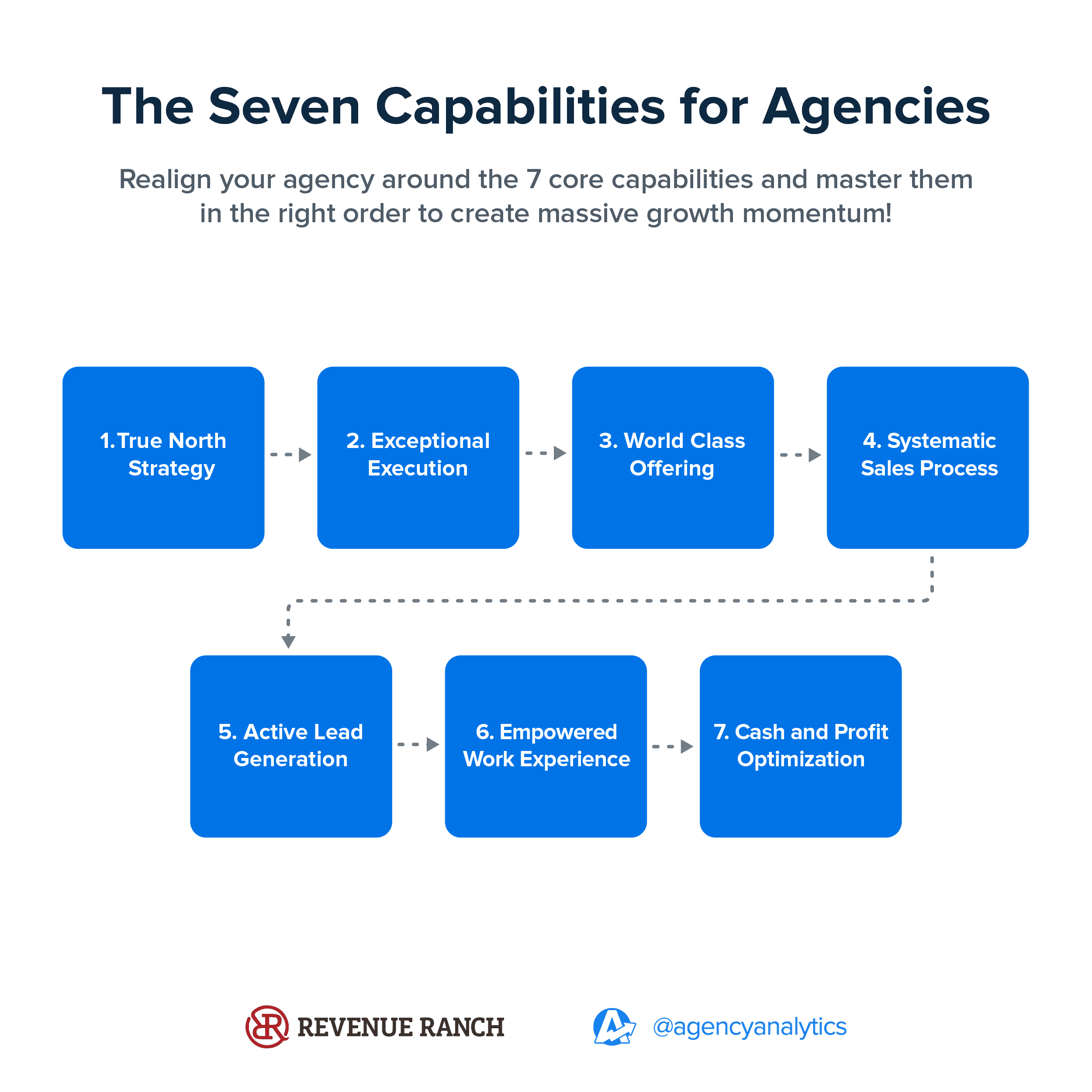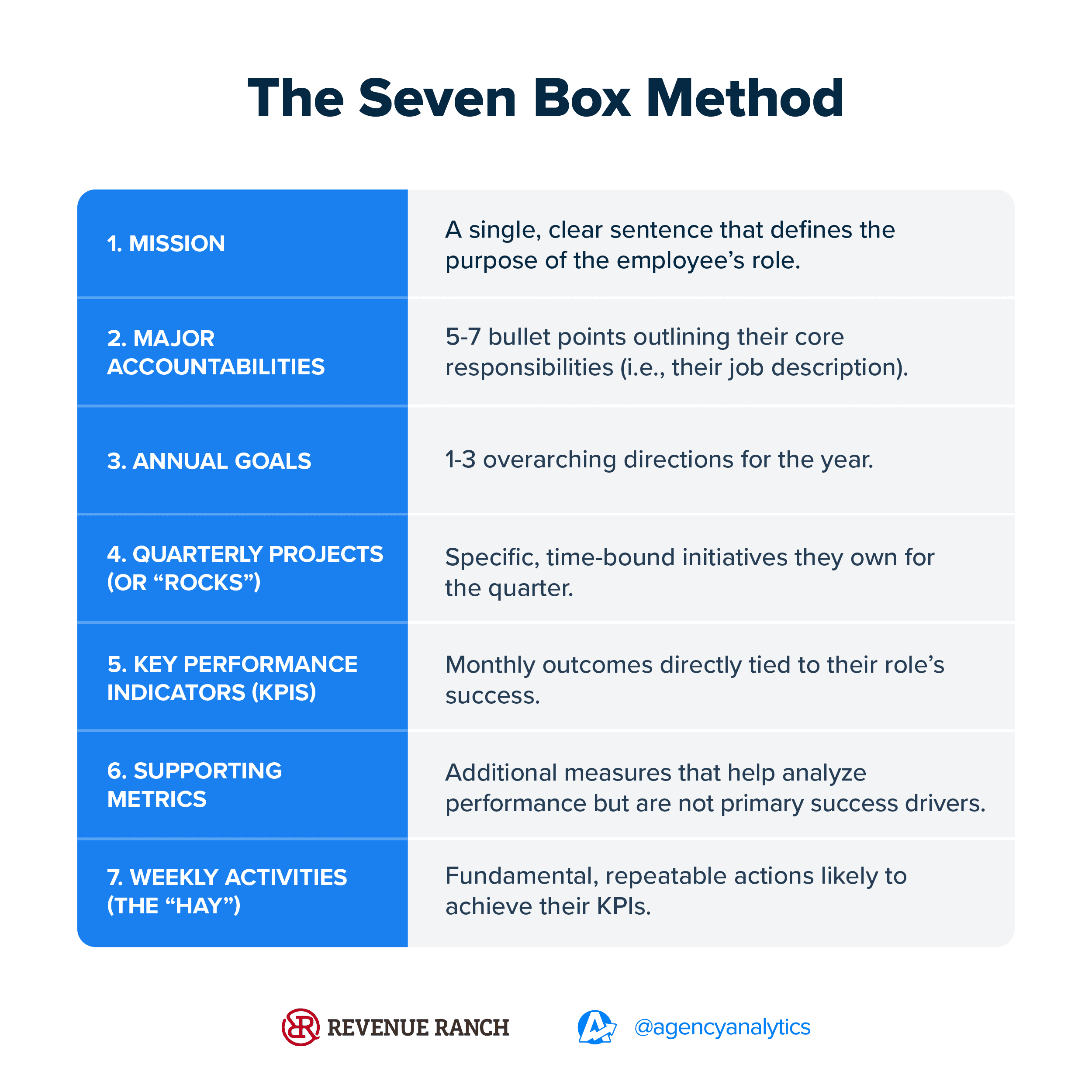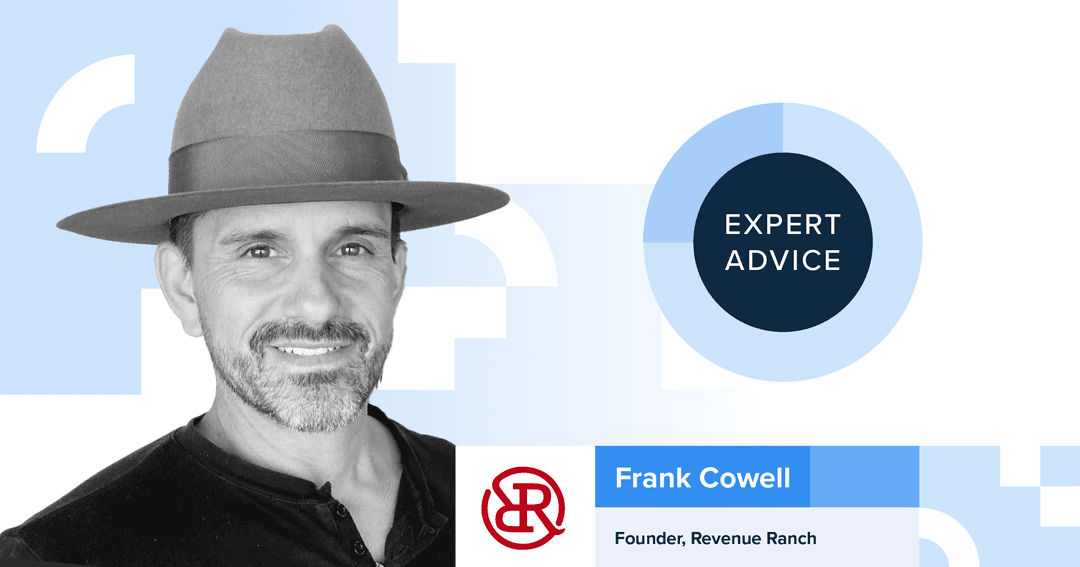Table of Contents
QUICK SUMMARY:
An Empowered Work Experience ensures employees have the clarity, tools, and support they need to excel. Agencies create thriving teams where employees feel empowered by fostering accountability, investing in development, and prioritizing culture. In this article, Frank Cowell shares a scalable approach that transforms leadership, enabling founders to step back while their agency grows sustainably and successfully.
You’ve seen it before—or maybe you’re living it. The agency where the founder wears every hat: strategist, account manager, HR lead, even IT support. Meanwhile, the team struggles with unclear expectations, missed deadlines, and high turnover. Growth slows, employee engagement suffers, job satisfaction plummets, frustration builds, and the founder feels stuck.
Here’s the truth: You don’t have to do it all alone. Breaking free from this cycle isn’t about working harder; it’s about creating an environment where your team can thrive without constant oversight. Revenue Ranch founder Frank Cowell calls this the Empowered Work Experience, a critical piece of his Seven Capabilities Framework.
Agencies are people-driven businesses. All we’re selling is people, ultimately, right? The firms that view employee investment as creating a competitive advantage are the ones that thrive and grow.
Frank Cowell, Founder, Revenue Ranch
Yet, many agencies overlook their employee experience, treating it as an afterthought instead of a strategic advantage.
An Empowered Work Experience unlocks your agency’s full potential. It creates a scalable business where leaders step back from day-to-day operations, employees feel valued, and teams deliver consistently.
Let’s explore how to make this happen.
What Does an Empowered Work Experience Mean for Agencies?
An Empowered Work Experience is a transformative and essential approach to team management in which employees are equipped to excel professionally and personally.
For agencies (or any business), an Empowered Work Experience is about more than ping-pong tables or free snacks—although those are nice, too. It’s about giving employees an environment where they understand their role, are supported, and have the tools to succeed.
We’re trying to create a work experience that allows your people to be the absolute best they can be.
Frank Cowell, Founder, Revenue Ranch
Here’s what it looks like in practice:
Focused leadership: Empowered teams need a dedicated leader to champion this experience. Frank notes, “It doesn’t make sense to have a dedicated executive in that role when you’re five people. But when you’re 30, 50, or more, you better be thinking this way.”
Clear expectations: Employees thrive when their responsibilities and goals are clearly defined. “Every employee in your company needs clarity,” Frank explains. “What’s the mission of their role? What are their major accountability items? What are their goals for the year?”
Strategic investment: To truly empower your team, treat this as a strategic advantage, not just an expense. Some agencies may see these employee work experience investments—onboarding, training, support, etc.—as a “necessary evil,” but the agencies that succeed are those that prioritize these investments.
Within the Seven Capabilities Framework, an Empowered Work Experience transforms your agency from a bottlenecked operation into a well-oiled machine. Ask yourself: What would your agency look like if every team member was aligned, empowered, and thriving?

Why Agency Leaders Should Care About Empowered Work Experience
Your team is the backbone of your agency’s success. Yet many leaders undervalue the impact of creating an Empowered Work Experience, missing a critical opportunity to scale effectively and sustainably.
When we think about the things that create the work experience as valuable strategic decisions, those are the firms that grow thriving businesses where the founder isn’t a superhero at the helm.
Frank Cowell, Founder, Revenue Ranch
While Empowered Work Experience enhances employee satisfaction, it fundamentally is about building a resilient agency that operates seamlessly without the founder handling every decision.
Here’s why this matters for your agency:
It Helps Attract and Retain Top Talent
High performers seek environments where they can grow. Without clarity, professional development, and a supportive workplace, your best people will leave for competitors.
Nothing will erode workplace culture more than letting poor performers hang around.
Frank Cowell, Founder, Revenue Ranch.
Creating an Empowered Work Experience shows that your agency values excellence and accountability, reinforcing a culture where top talent thrives.
It Unlocks Scalable Growth
Founders often carry too much weight because their team lacks the tools, training, or clarity to take ownership. An empowered workforce ensures growth doesn’t come at the cost of burnout or bottlenecks.
“When you’re ready to invest in this area strategically, it can become your competitive advantage,” Frank says.
It Helps Deliver Better Results for Clients
Engaged workers deliver better work. When your team is aligned and supported, client outcomes improve—higher-quality projects, proactive communication, and stronger relationships.
The Key Ingredients of an Empowered Work Experience
Building an Empowered Work Experience means ensuring every team member has the clarity, tools, and support they need to succeed. It also means creating a work environment that drives results and sets your agency up for sustainable growth.
1. Put the Right Leader in Place
Managing the Empowered Work Experience is more than just another HR task—it requires a dedicated leader. Hiring a Chief People Officer or a similar role signals your commitment to prioritizing your team’s success.
This leader oversees everything from recruitment to culture development, ensuring your team and systems align with the agency’s goals.
2. Empower With Clarity: The Seven Box Method
Clarity is foundational to the Empowered Work Experience, and the Seven Box Method provides a clear framework for defining every role.
Here’s how it works:
Mission: A single, clear sentence that defines the purpose of their role. In the case of a sales leader, for example: “To hire, train, and coach a sales team that consistently achieves revenue targets.”
Major accountabilities: 5-7 bullet points outlining their core responsibilities. Think of this as their high-level job description.
Annual goals: 1-3 overarching directions for the year, such as “Improve employee retention” or “Improve client retention.” Remember: Goals are sentimental and directional. Specific targets towards these goals are the objectives—everything else below.
Quarterly projects (or “Rocks”): Specific, time-bound initiatives they own for the quarter. For a team lead, this might be, “Implement a 90-day welcome and onboarding experience for new clients by [date].”
Key performance indicators (KPIs): Monthly outcomes directly tied to their role’s success. For example, a sales lead might have a target of $25,000 in revenue. .
Supporting metrics: Additional measures that help analyze performance but are not the primary success drivers. For example, tracking average contract value or lead conversion rates.
Weekly activities (the “Hay”): Fundamental, repeatable actions likely to achieve their KPIs. Frank calls this the “hay” and describes this as “the stuff you do every week without fail. They’re fundamental activities that aren’t glamorous, but they get results.”
The Seven Box Method gives every employee a roadmap, fosters accountability, and aligns individual efforts with broader agency goals.

3. Invest in Professional Development
Empowered employees must continue to grow. A structured, consistent approach to professional development opportunities ensures everyone, from admin teams to senior leadership, will have a chance to improve.
Tailored training programs: Different roles require different skill sets. For example, frontline employees might focus on technical or task-specific training, while managers and leaders prioritize strategic thinking, system improvements, and team development.
Continuous learning opportunities: Growth isn’t a one-time event. Whether it’s attending industry conferences, accessing online courses, or participating in regular workshops, employees should have ongoing opportunities to expand their knowledge and skills.
Support for individual goals: Professional development benefits the agency and should align with each employee’s personal career aspirations. Investing in their growth demonstrates that you value them as individuals, not just as contributors to your bottom line.
Consistent protocols: Development efforts should be standardized across the agency, ensuring fairness and alignment with company goals. For example, the same expectations for tracking and measuring progress should apply whether someone is learning SEO techniques, mastering sales strategies, or enhancing leadership skills.
The person in charge of Empowered Work Experience ensures that training is conducted consistently and that there is a protocol for it across the entire organization, not just with the client service/delivery teams.
Frank Cowell, Founder, Revenue Ranch
Investing in professional development shows your team that you’re committed to their success. It creates more motivated employees and reinforces a culture of continuous improvement, positioning your agency to adapt and thrive.
More importantly, empowered employees perform better—they stay longer, contribute more, and elevate your agency’s reputation.
4. Protect Your Culture
Your culture is only as strong as the behavior you tolerate. When poor performance, missed commitments, or toxic attitudes go unchecked, they affect more than the individual—they erode team morale, undermine trust, and damage your agency’s reputation.
Ignoring these issues signals to your team that mediocrity is acceptable. High-performing team members want to work in an environment where accountability is upheld and excellence is the standard.
Follow this structured approach to protect your culture:
Validate clarity and empowerment: Before addressing underperformance, ensure expectations were clear and resources were provided. If they weren’t, that’s a management issue.
Start with verbal discussions: If clarity and empowerment were provided, outline the gap between expectations and outcomes. Focus on solutions, not blame.
Escalate to written warnings: If issues persist, document steps and timelines for resolution with a Performance Improvement Plan (PIP).
Terminate if necessary: Repeated underperformance warrants termination to maintain fairness and protect team morale.
Consistency in addressing issues shows your team that excellence and accountability are non-negotiable.
When these elements come together, they create a workplace where employees are engaged, aligned, and empowered to succeed. The result? A thriving, scalable agency.
How To Start Building an Empowered Work Experience at Your Agency
Creating an Empowered Work Experience might feel overwhelming, but you don’t need to revamp your entire agency overnight. The key is to start small, build momentum, and scale gradually.
You don’t need to do everything at once. When the previous capabilities are firing on all cylinders, that’s when this investment becomes a strategic advantage.
Frank Cowell, Founder, Revenue Ranch
Here’s a step-by-step approach to get started:
1. Begin With Clarity: Implement the Seven Box Method
Start by piloting the Seven Box Method for one role or department. Focus on defining:
Mission: The purpose of the role in a single sentence.
Major accountabilities: Key responsibilities that align with agency goals.
KPIs and weekly activities: Metrics and actions that directly drive success.
Rolling this out team by team ensures alignment without overwhelming your agency.
2. Schedule Bi-Monthly One-on-Ones
Regular check-ins are essential for maintaining alignment and understanding employee needs. Use these sessions to:
Discuss personal and professional development.
Address roadblocks and offer support.
Collaborate on ways to improve their role or employee performance.
These meetings are about employee empowerment, not status updates—save those for team huddles.
3. Establish Training Protocols
Consistency is key. Develop training programs tailored to each role:
Frontline employees: Focus on task-specific or technical skills.
Managers: Emphasize leadership, team-building, and systems improvement.
Ensure training is measurable and repeatable to maintain fairness and alignment.
4. Create a Performance Management Framework
Underperformance is inevitable, but it doesn’t have to derail your team. A structured process helps address issues fairly and effectively:
Start by confirming clarity and empowerment.
Use verbal discussions to highlight and address gaps.
Escalate to written warnings or improvement plans when necessary.
This framework ensures accountability while protecting team morale.
5. Regularly Assess and Iterate
Building an Empowered Work Experience isn’t a one-time project. Schedule regular reviews to evaluate what’s working and identify areas for improvement. Gather feedback from your team to refine processes and fill gaps.
Starting small and staying consistent creates an agency where employees thrive and clients benefit from the results. The impact of this investment will ripple across your team, company culture, and bottom line.
Impress clients and save hours with custom, automated reporting.
Join 7,000+ agencies that create reports in under 30 minutes per client using AgencyAnalytics. Get started for free. No credit card required.
Already have an account?
Log inBuild the Agency You’ve Always Imagined
Your agency's success is about more than tools, clients, or strategies—it’s about your people. Without an empowered team, your agency will always depend on you to hold it together. But when your team is set up to thrive, you create something far greater: an agency that delivers results, scales sustainably, and inspires loyalty.
If you don't make it about your people, you won't ever get there. As founders, general managers, and leaders, we have to make ourselves less and less important to the business until we have something that can truly run without a superhero at the helm.
Frank Cowell, Founder Revenue Ranch
Here’s the good news: You don’t have to tackle everything at once. Start small. Begin with clarity—define one key role and its responsibilities. Schedule a one-on-one to understand what your team needs. Choose today to make your people your priority.
When you do, you’ll see the results in team performance and your freedom as a leader. An Empowered Work Experience isn’t just for your team; it’s for you, too. It’s the foundation of a thriving agency and the key to building the business you’ve always imagined.

Written by
Francois Marchand brings more than 20 years of experience in marketing, journalism, content production, and artificial intelligence (AI). His goal is to equip agency leaders with innovative strategies and actionable advice to succeed in digital marketing, SaaS, and ecommerce.
Read more posts by Francois MarchandSee how 7,000+ marketing agencies help clients win
Free 14-day trial. No credit card required.






